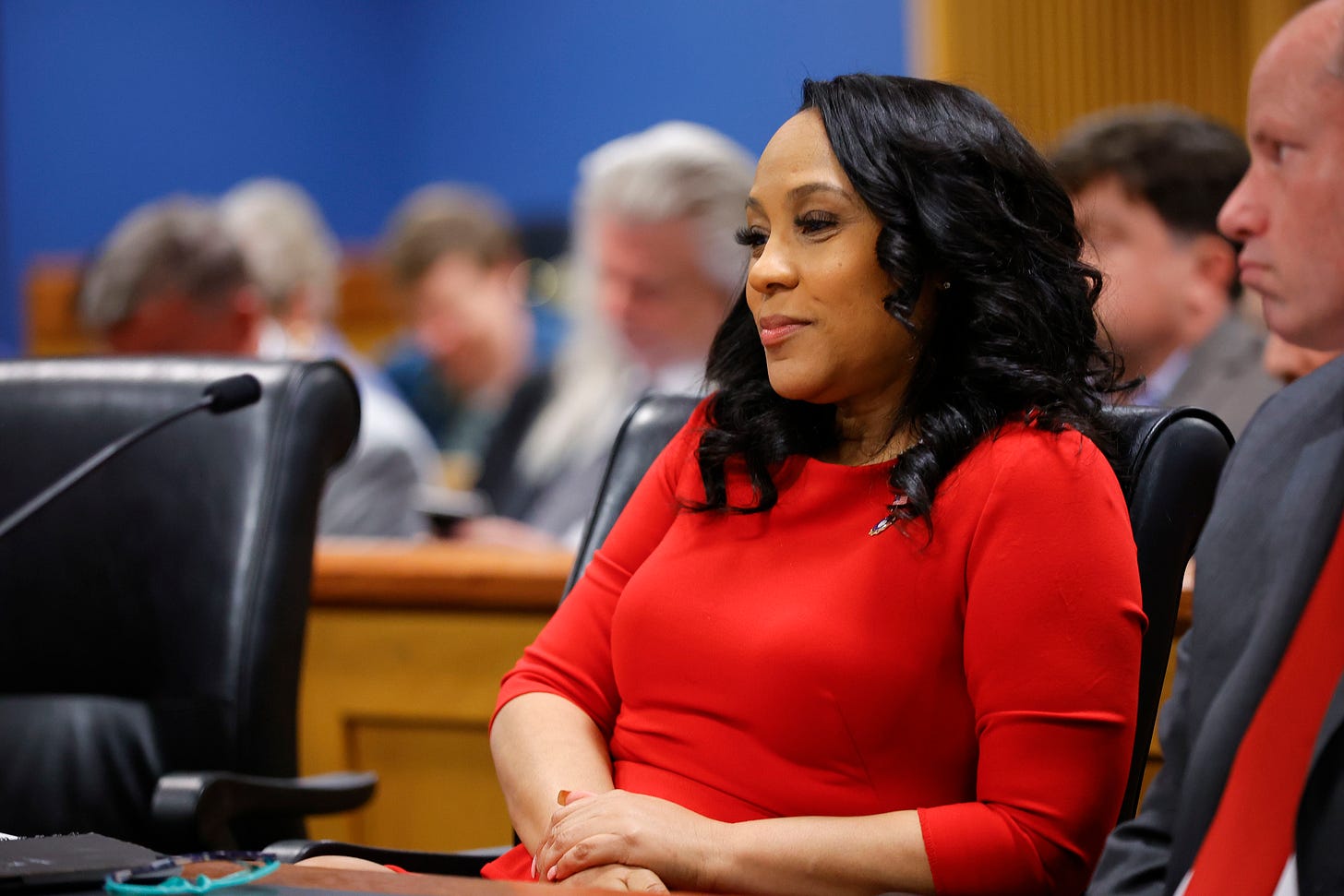
Good morning and happy Friday to each of you! Today I am going to quickly break down two big rulings that have just come down in Fulton County and in the Mar-a-Lago confidential documents case in Florida. We have been inundated with legal procedure revolving around Trump’s many civil and criminal court cases, so I thought a quick breakdown of what has happened and what it will mean is in order to get our weekend started properly.
I would also like to remind you that I have created a quick reference to all of Trump’s current litigation issues in this article:
Mar-a-Lago Case
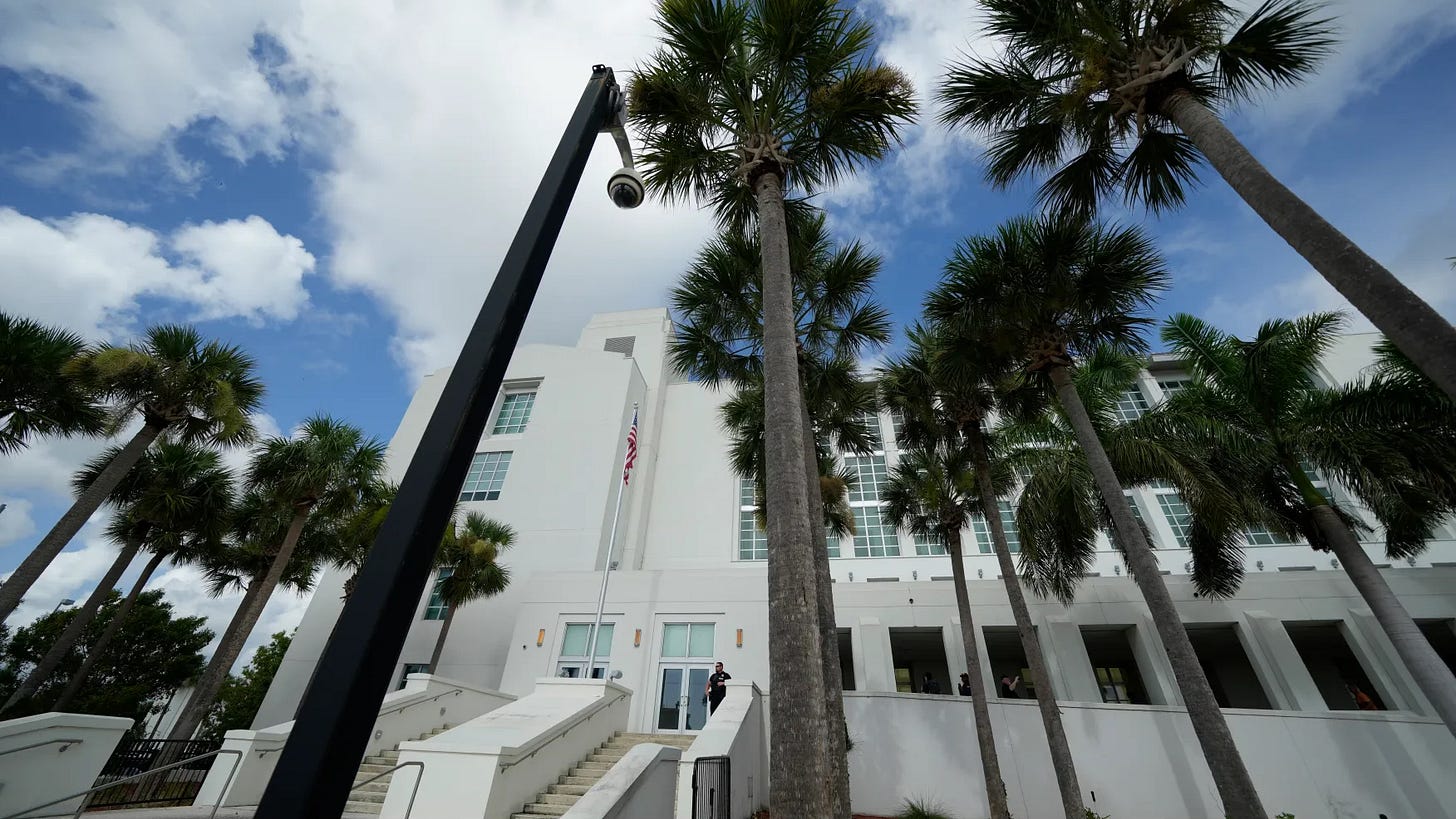
Yesterday, Judge Aileen Cannon heard oral arguments on two motions made by Donald Trump’s counsel to dismiss his case in federal court. The fact that the judge, a Trump appointee, was entertaining these filings to the point of holding a hearing for oral arguments was concerning, as most judges would have dismissed the objections without a need for hearings.
In this case, Donald Trump faces 40 criminal charges related to his alleged mishandling of classified documents, including conspiracy to obstruct justice and willful retention of national defense information. In yesterday’s hearing, attorneys for Trump were challenging a portion of the Espionage Act, which is a law from 1917 that makes it a crime to “convey false reports or false statements with intent to interfere with the operation or success of the military or naval forces of the United States” or to promote its enemies' success.
Trump Attorney Emil Bove argued on Thursday that the wording of the statute is unconstitutionally vague, saying there are questions about what it means to have "unauthorized possession" of the documents in question. Bove continued, saying Donald Trump, as president at the time, could have given himself authorization to take these documents to his Mar-a-Lago residence and club.

Bove also said it is not clear what the statute means regarding documents "relating to the national defense." Lawyers for Trump additionally argued that the prosecution of their client is “arbitrary” and “politically motivated.” Bove cited other cases where President Biden, former Vice President Mike Pence and former Secretary of State Hillary Clinton were found to have taken classified documents, but were not charged with any crimes.
Federal prosecutors working for Special Counsel Jack Smith responded by telling the court that the law is not vague, but is quite clear, and that anything with a “classified” or “top secret” label constitutes “unauthorized possession” under the law. The prosecution also made the point to say that the former president lost his authorization to view classified material when he left the White House.
Prosecutors also contended that in the cases cited by Trump’s counsel, involving previous politicians, the documents in question were quickly and properly returned and there was no effort to actively obstruct or hide them from investigators.
After spending the day hearing both motions brought by Trump, Judge Cannon immediately denied the motion, issuing the ruling shortly after a daylong hearing on the motions, with Trump in attendance. Cannon made the point to say from the bench that the vagueness claim raised by Trump has come up in many other cases before and that no judge has ever found the statute unconstitutional.
In her brief, two-page order, Cannon said that "rather than prematurely decide now," she was denying the unconstitutional void for vagueness motion, so it could be "raised as appropriate in connection with jury-instruction briefing and/or other appropriate motions."
With regard to his second motion involving Trump’s entitlement to take the boxes of documents to Mar-a-Lago under the Presidential Records Act, Judge Cannon determined that Trump's argument warranted "serious consideration," and that she did not want to "prematurely decide" the issues raised by Trump's lawyers, unlike her decision which immediately settled any Espionage Act issues.
Cannon continued: "…the Court ultimately determines, following lengthy oral argument, that resolution of the overall question presented depends too greatly on contested instructional questions about still-fluctuating definitions of statutory terms/phrases as charged, along with at least some disputed factual issues as raised in the Motion.”
While anyone with legal training could tell you that the appropriate ruling from Cannon on Trump’s entitlement to the records post-presidency could have been made just as quickly, and his motion should have been denied yesterday as well, we will have to wait a bit longer for Cannon’s final say on Trump’s second motion to dismiss.
Fani Willis in Fulton County
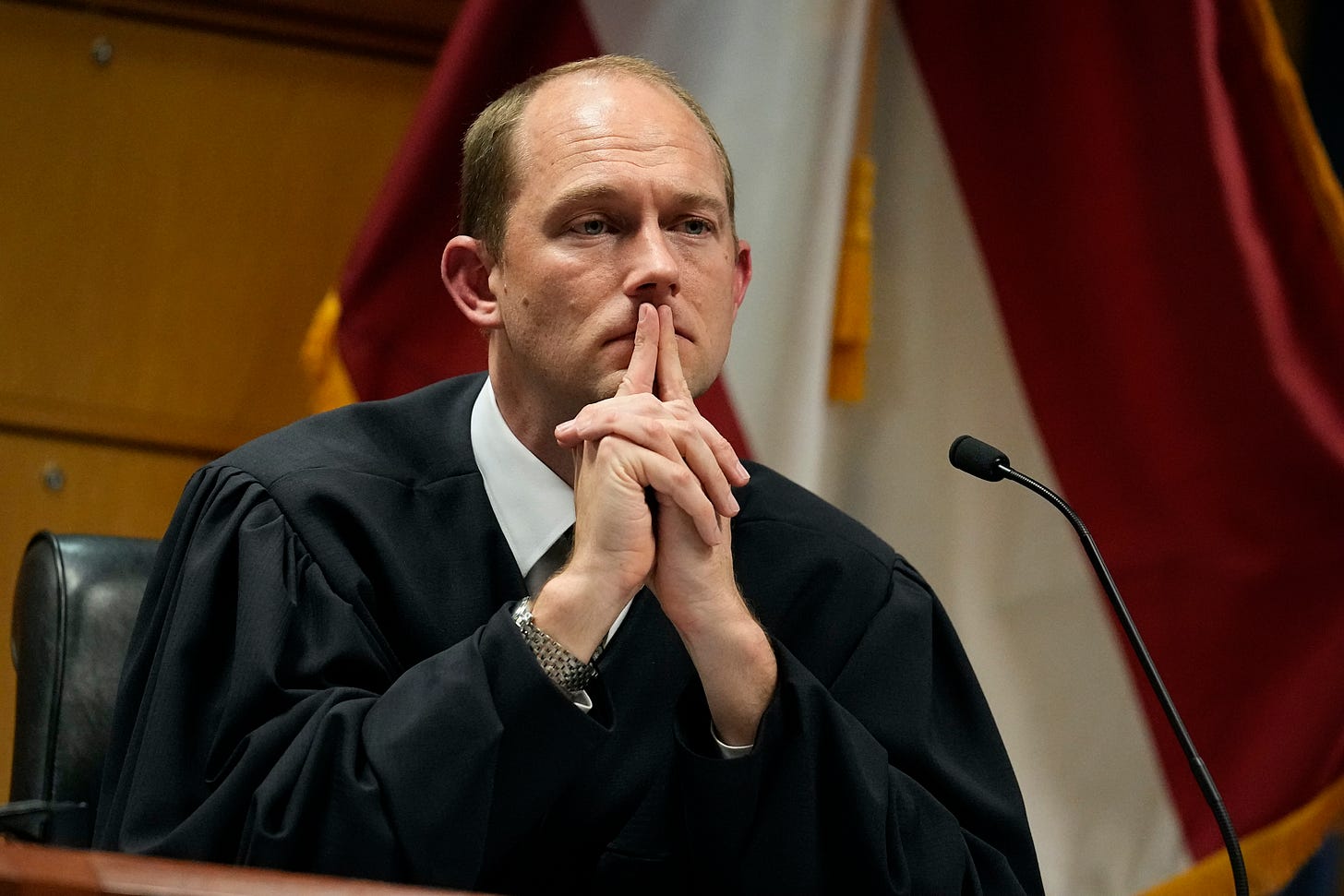
Fulton County Superior Court Judge Scott McAfee has ended weeks of political and legal speculation, and has determined that District Attorney Fani Willis should not be disqualified from prosecuting Donald Trump and his 14 other co-defendants, in the racketeering case brought in Georgia.
Donald Trump, et al., were charged in August, 2023, by Fulton County District Attorney Fani Willis with participating in a scheme to illegally try to overturn the Georgia results in the 2020 presidential election. All defendants were charged under Georgia’s Racketeer Influenced and Corrupt Organizations Act (RICO). Trump also was charged with 12 additional criminal counts, including solicitation of violation of oath by a public officer, filing false documents, false statements and writings, and assorted conspiracy charges.
For the past several weeks, Judge McAfee has been holding a hearing on a motion to disqualify Fani Willis from prosecuting the case based on an allegation of impropriety brought by former Trump White House and campaign staffer Michael Roman, one of Trump’s co-defendants in the election interference case. Roman has argued that Willis’ personal romantic relationship with special prosecutor Nathan Wade, who is assisting her in prosecuting this case, should disqualify her from pursuing charges.
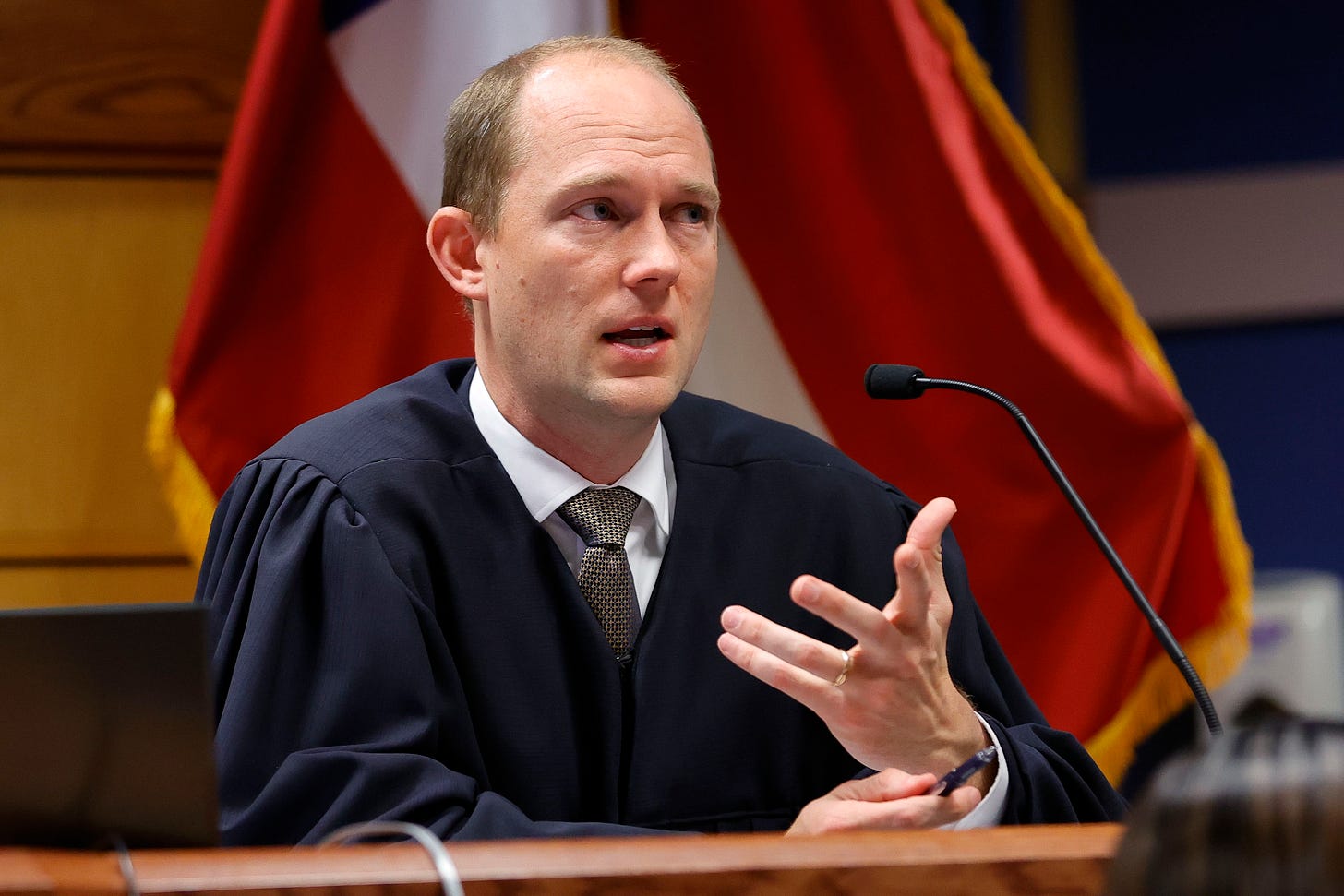
This morning, Judge McAfee issued his ruling on the matter, finding that while there was an "appearance of impropriety" brought about by Willis' romantic relationship with Wade, District Attorney Fani Willis should not necessarily be disqualified from prosecuting Donald Trump and his co-defendants. Ultimately, McAfee determined that allowing both Willis and Wade to continue together in their prosecution would be improper, but if one of them were to recuse themself from the case, the issue would be remedied.
The judge determined there was no "actual conflict" brought about by the relationship, which is a finding that would have required Fani Willis to be disqualified. "Without sufficient evidence that the District Attorney acquired a personal stake in the prosecution, or that her financial arrangements had any impact on the case, the Defendants’ claims of an actual conflict must be denied," Judge McAfee explained.
“This finding is by no means an indication that the Court condones this tremendous lapse in judgment or the unprofessional manner of the District Attorney’s testimony during the evidentiary hearing. Rather, it is the undersigned’s opinion that Georgia law does not permit the finding of an actual conflict for simply making bad choices — even repeatedly — and it is the trial court’s duty to confine itself to the relevant issues and applicable law properly brought before it,” the judge concluded.
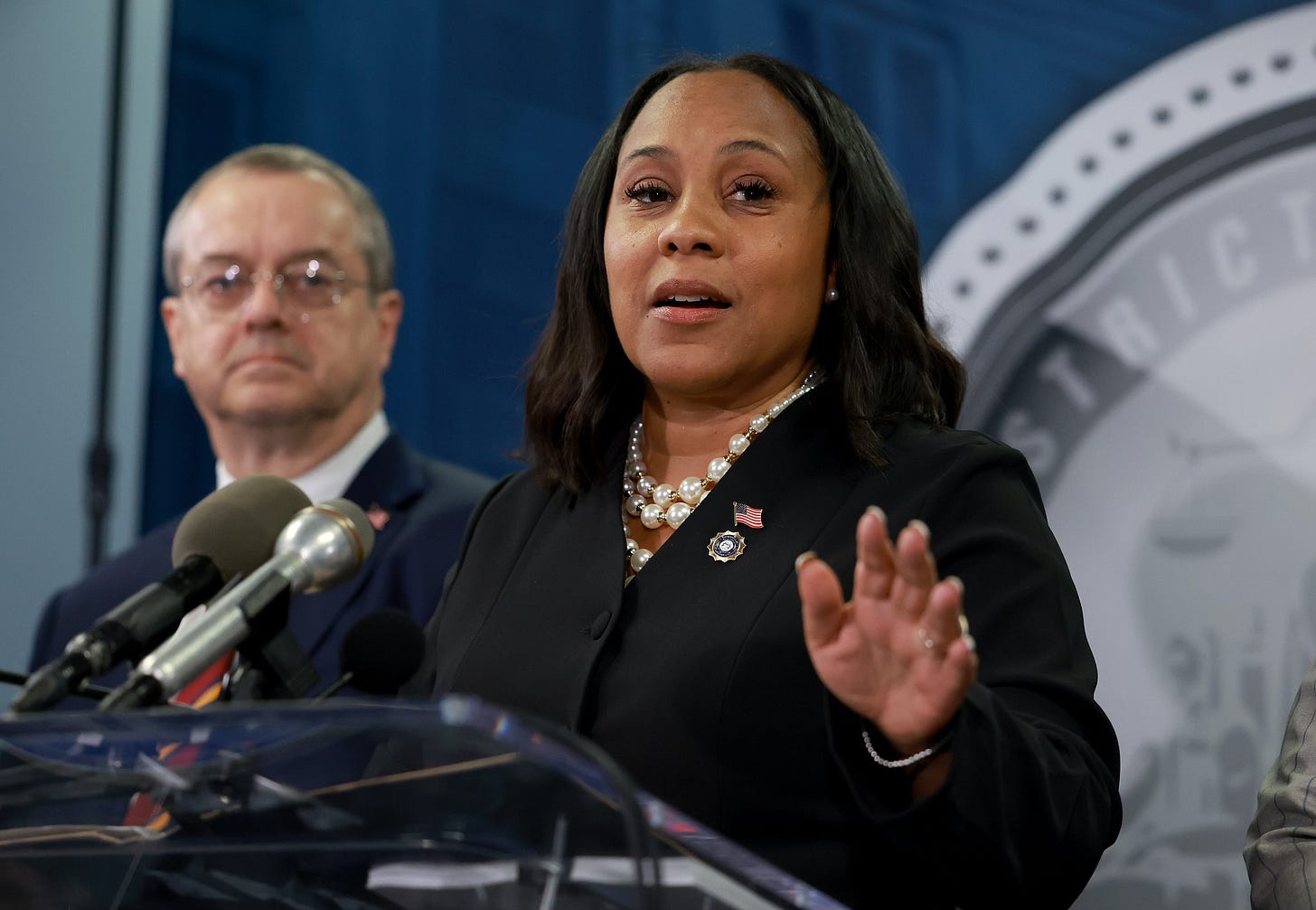
Today’s ruling follows another critical decision from Judge McAfee on Wednesday, when he dismissed six of the 41 charges in the ongoing Trump RICO case. “The Court’s concern is less that the State has failed to allege sufficient conduct of the Defendants – in fact it has alleged an abundance. However, the lack of detail concerning an essential legal element is, in the undersigned’s opinion, fatal,” McAfee wrote in Wednesday’s order.
“As written, these six counts contain all the essential elements of the crimes but fail to allege sufficient detail regarding the nature of their commission, i.e., the underlying felony solicited,” McAfee added. “They do not give the Defendants enough information to prepare their defenses intelligently, as the Defendants could have violated the Constitutions and thus the statute in dozens, if not hundreds, of distinct ways.”
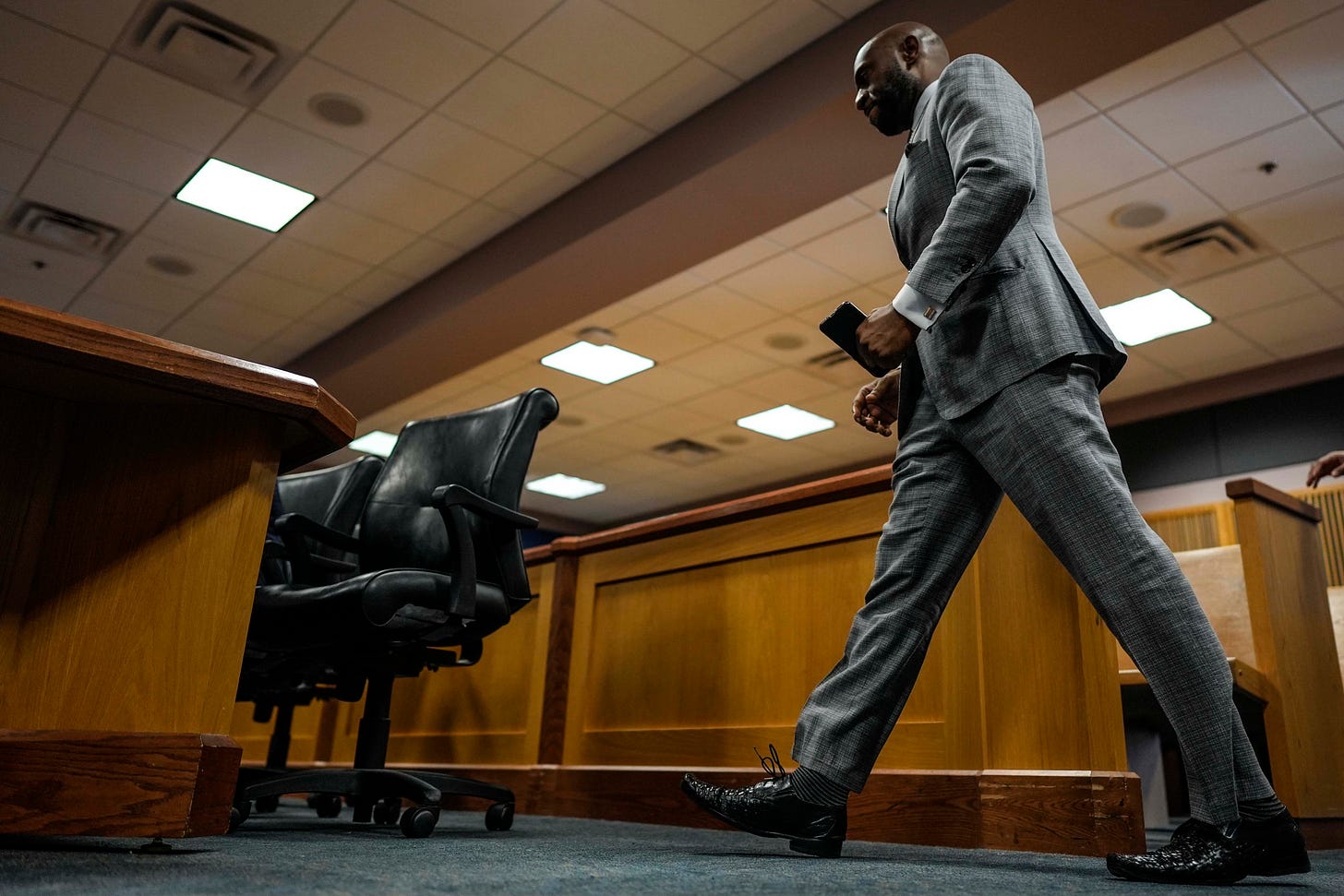
Even though McAfee threw out the charge involving solicitation of a violation of oath by a public officer, the judge specified that the alleged conduct that creates the foundation of the charge could still be relied upon by prosecutors during the trial, as part of the larger racketeering (RICO) charge that forms the basis of the case brought by Fani Willis. “This does not mean the entire indictment is dismissed,” McAfee explained.
While the prosecution still has leave to amend the charges against Trump and his co-defendants, that process would be a significant set-back with regard to a timely prosecution. Ultimately, by failing to specify any underlying constitutional provision with regard to the charges in question, prosecutors made a mistake that would have created significant error during the trial and a problem on appeal. It is an appropriate ruling, but one which could further delay the Fulton County District Attorney in her prosecution and is problematic because Willis is looking to highlight the former president’s crimes before the next presidential election in November.
Amee Vanderpool writes the SHERO Newsletter, is an attorney, published author, contributor to newspapers and magazines, and an analyst for BBC radio. She can be reached at avanderpool@gmail.com or follow her on Twitter @girlsreallyrule.
Paid subscriptions and one-time tributes embedded in each article allow me to keep publishing critical and informative work that is sometimes made available to the public — thank you. If you like this piece and want to support independent journalism further, you can forward this article to others, get a paid subscription or gift subscription, or donate as much as you like today.







Does anybody actually believe the huckster that is Donald Trump will ever be held to account for his many crimes? He hasn’t yet and he has a lifetime of them.
Thank you for this explanation!